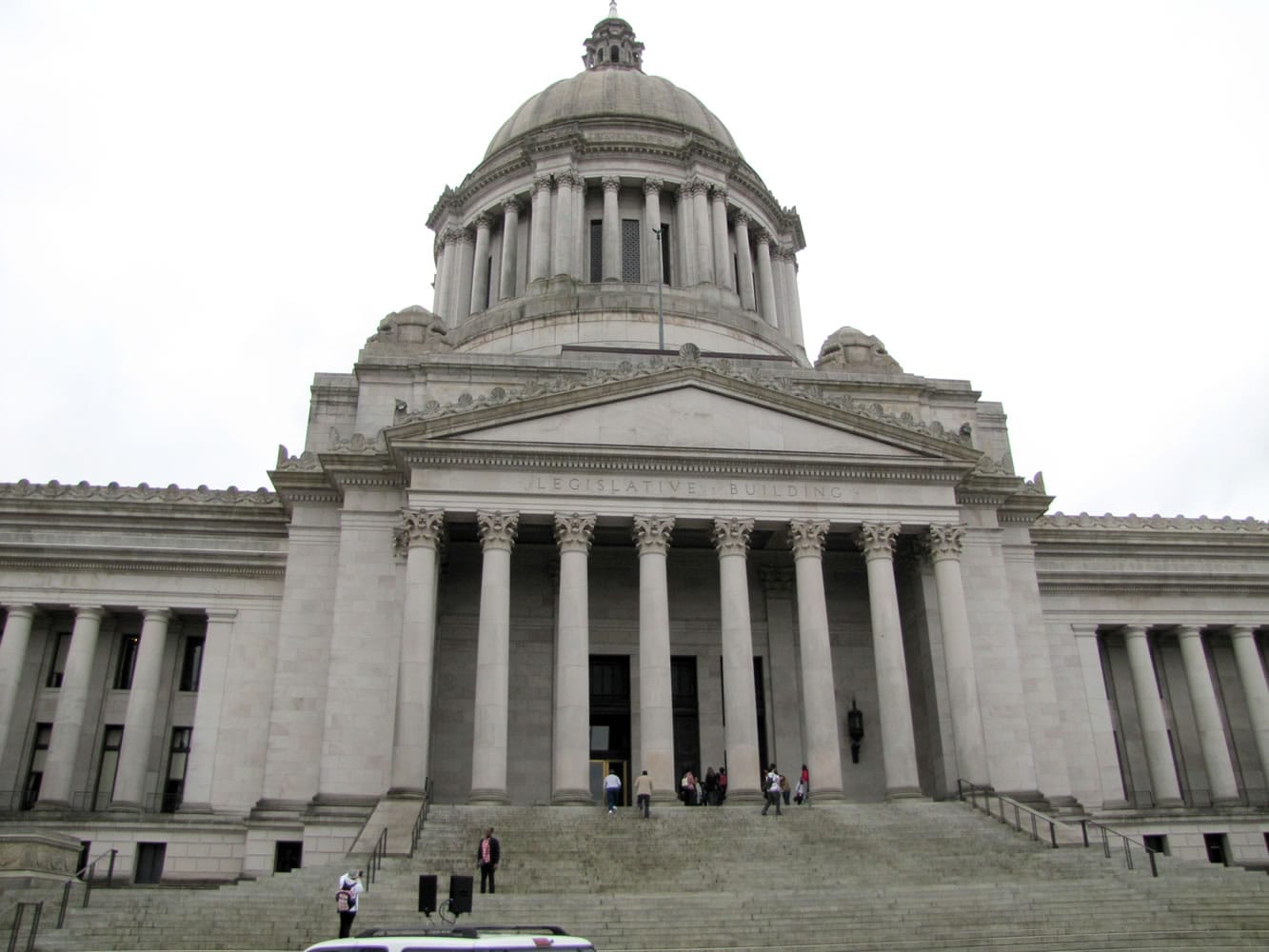Contact information
How to contact your legislators
An array of daunting tasks — from funding the state’s public schools, funneling money into transportation projects and reining in the unregulated medical marijuana market — face Washington lawmakers as they head into the 2015 legislative session.
Lawmakers kick off the 105-day session today under the cloud of contempt, which is where they landed when the state’s Supreme Court ruled they failed to fully fund basic education. Throw in a package of lofty climate proposals from the governor and tighter margins between the two parties in both chambers, and this legislative session is sure to generate headlines.
Lawmakers have vowed the more evenly split chambers will mean a move to the middle rather than a slip into gridlock.
But talking points have already taken shape and party politics threatens to derail lawmakers from finishing their highest priority on time: balancing the budget.
“This will be a watershed moment for a lot of people because the majorities are so close,” said Rep. Jim Moeller, D-Vancouver, who is the speaker pro tempore of the House.
Republicans control the Senate and Democrats the state House of Representatives.
“We have to find a way to work together, and I think the path is fairly clear where we want to go, as far as our goals are concerned,” Moeller said. “It’s how we get there that is the difficult part.”
Education
When it comes to education funding this session, the stakes are high.
In September, the state’s top court ruled lawmakers failed to make adequate progress toward their constitutional duty of funding basic education. The court moved to hold the Legislature in contempt, but gave lawmakers the 2015 legislative session to make progress before deciding whether to issue sanctions.
The governor unveiled an education budget last month that included implementing full-day kindergarten statewide and reducing class sizes to 17 for kindergarten through third grade in the 2016-17 school year. But some lawmakers are wary of the plans Gov. Jay Inslee proposed to pay for his ambitious education goals, including a tax on polluters.
“I don’t see how he gets that through; if he does, it’s through executive orders,” said Sen. Ann Rivers, R-La Center, adding that she’s “not on board” with the idea.
Washington voters dealt another blow to the budget when they approved Initiative 1351 to reduce class sizes.
Education funding will “drive the session,” said Todd Donovan, a political science professor at Western Washington University.
Lawmakers would need a two-thirds vote to suspend 1351, or they could send the measure back to voters to ask for clarity on how to fund the measure.
Democrats have held steady to the idea that new revenue from taxes is a key component to meeting the court’s requirement to fund the state’s public schools. Republicans have said Olympia “doesn’t have a revenue problem, but a spending one,” and many on the right said they would not vote for a tax hike.
If lawmakers fail to adjourn on time, these are the issues “they will probably still be talking about after the 105 days,” Donovan said.
Transportation
The governor’s proposed transportation budget doesn’t fund a single Southwest Washington project — a contrast from two sessions ago when a plan carved out $450 million for the now-defunct Columbia River Crossing.
Inslee’s budget did reserve $650 million of unallocated money to dedicate toward projects of local concern to communities throughout the state.
The governor mentioned he was aware there were projects of “local concern” in Clark County, such as the widening of Interstate 205 in Vancouver, the widening of state Highway 502 and Main Street in Battle Ground, and a rail overpass in Ridgefield.
In previous sessions, Republican lawmakers would not vote for a transportation package without reforms to the state’s Department of Transportation.
That appears to still be the case.
“I’m not going to say ‘no’ to a transportation package,” Rivers said. “A lot of people are saying ‘no’ … I’m going to say ‘quite possibly’ and then work to make sure we get those reforms so we can start to meet some of the needs of the infrastructure that is at risk right now.”
Marijuana
The entire Southwest Washington delegation recently attended a legislative breakfast in Vancouver.
Although the two parties didn’t align on many of the controversial issues, they did agree on one point: cities and local jurisdictions should receive a portion of the taxes captured on the sale of recreational marijuana.
“We need to empower our locals to provide police protection and provide for the prosecution of folks still engaging in criminal activity,” Rivers said in a later interview.
Rivers said her top priority this legislative session will be “harmonizing” the state’s recreational and medical marijuana industries so the two systems are both regulated.
Rep. Sharon Wylie, D-Vancouver, said she will also tackle marijuana issues.
“With Oregon coming on board, we have to take a good look at our taxing structure because what Oregon is doing is real different,” she said, noting Washington’s recreational pot will likely be taxed at a higher rate than Oregon’s.
Washington voters approved legalizing recreational marijuana in 2012; Oregon voters approved a similar measure in November.
Local issues
In addition to the big-ticket items likely to dominate the session, lawmakers will also work on bills that focus mainly on Southwest Washington.
Wylie will work on a frozen pizza “inequity” that would help Papa Murphy’s.
“There is a small inequity with take-and-bake pizzas, which is important to one of our corporations here in Clark County,” Wylie said. “If you buy a frozen pizza in the grocery store to take home and cook, you don’t pay tax on it’s because it’s food. If you buy take-and-bake, you pay taxes.”
Rep. Paul Harris, R-Vancouver, will push for a tax-incentive extension that would benefit some local high-tech industries. He’s also crafting a measure requested by a constituent that would ensure students with learning disabilities are questioned by police only in the presence of the student’s parents.
Lawmakers will keep their eye on measures that would boost safety regulations around oil terminals, and some local lawmakers voiced support for a measure that would scale back the recent push to expand background checks on gun sales.
State Sen. Annette Cleveland, D-Vancouver, recently announced a package of bills that would improve collaboration between states and make it more difficult for leaders to kill a major transportation project after it’s been worked on for an extended period of time. Cleveland, a proponent of the Columbia River Crossing, said there would be “safeguards” applied to bistate transportation projects valued at $500 million or more in order to prevent another project following the same path as the failed Columbia River Crossing.
Rep. Brandon Vick, R-Felida, said he’s been working with local forestland owners who are worried the Bonneville Power Administration could be eying their property for new power lines. He said he could craft legislation ensuring property owners are compensated if the federal agency moves forward.
And overall, Rep. Liz Pike, R-Camas, said she will work hard to prevent the governor from “doing stupid stuff that will harm our state’s economy and businesses.”




